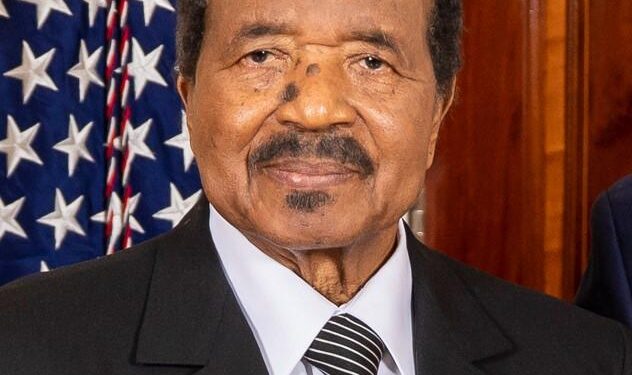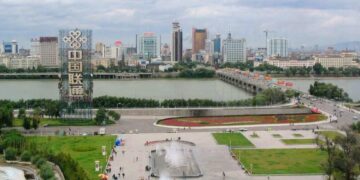President Paul Biya Commits CFAF 8.47 Billion to Revitalize Yaoundé’s Road Infrastructure
In a strategic effort to modernize the capital city’s transportation framework, President Paul Biya has earmarked CFAF 8.47 billion for the comprehensive rehabilitation of critical roadways in Yaoundé. This substantial financial commitment reflects the government’s dedication to tackling urban congestion and deteriorating infrastructure, which have long hindered mobility and economic progress in the region.
Scope of Road Rehabilitation: Key Projects and Objectives
The allocated funds will be directed toward several vital improvements designed to enhance both safety and efficiency across Yaoundé’s transport network. Planned interventions include:
- Repaving major arterial roads to ensure smoother vehicle movement.
- Patching potholes and repairing structural damages that compromise road integrity.
- Upgrading drainage systems aimed at mitigating flood risks during heavy rains.
- Installing improved signage and street lighting, enhancing visibility for drivers and pedestrians alike.
This initiative not only prioritizes commuter safety but also aims to stimulate employment opportunities within construction sectors, thereby contributing positively to local economic revitalization efforts.
The Economic Ripple Effect: How Better Roads Boost Local Prosperity
The infusion of CFAF 8.47 billion into Yaoundé’s road infrastructure is expected to generate significant socio-economic benefits by improving connectivity throughout the city. Enhanced roads facilitate faster movement of goods and people, which is essential for vibrant commercial activity. The anticipated outcomes include:
- Smoother logistics operations leading to reduced transportation costs for businesses.
- A surge in job creation during both construction phases and subsequent maintenance activities.
- An increased appeal for investors seeking reliable infrastructure as a foundation for new ventures.
| Sector | Expected Benefits from Road Improvements |
|---|---|
| Agriculture & Retail | Easier access boosts market reach, increasing sales volumes. |
| Public Transport & Logistics | Smoother traffic flow reduces delays, improving service reliability. |
| Cultural Tourism & Hospitality | Simplified travel routes attract more visitors, supporting local businesses. |
The reduction in travel times will also enhance residents’ daily experiences by decreasing commute stress while promoting safer transit conditions—factors that collectively improve overall quality of life in Yaoundé neighborhoods.
Navigating Success: Strategies for Effective Project Execution and Sustainable Growth
A successful rollout of this ambitious rehabilitation program hinges on robust collaboration between government bodies, private contractors, and community stakeholders. Establishing a dedicated oversight committee will be crucial in ensuring transparency, timely progress tracking, and swift resolution of any emerging challenges during implementation phases.
Engaging local communities early on can provide valuable insights into specific infrastructural needs while fostering public trust—a key ingredient often overlooked but essential for smooth project delivery.
Looking ahead at future urban development projects across Cameroon’s cities, adopting sustainable construction practices should become standard practice. This includes using eco-friendly materials alongside innovative technologies such as smart sensors or modular paving techniques that reduce environmental impact while optimizing costs.
Key recommendations moving forward include:
- Civic Participation: Involve residents actively through consultations or feedback platforms during planning stages;
- < strong > Technological Innovation : Leverage cutting-edge tools like GIS mapping or drone surveys for precise project design;
- < strong > Proactive Maintenance : Implement routine inspection schedules post-construction ensuring longevity;
- < strong > Environmental Stewardship : Prioritize green infrastructure elements such as permeable pavements or rain gardens where feasible;
These approaches not only extend asset lifespan but also align with global trends emphasizing resilient urban ecosystems amid climate change challenges.
A Forward-Looking Vision: Transforming Urban Mobility Across Cameroon
This injection of CFAF 8.47 billion into upgrading Yaoundé’s roads marks a pivotal step towards addressing longstanding infrastructural deficits impacting daily life across Cameroon’s capital city. Similar initiatives elsewhere on the continent highlight how targeted investments can catalyze broader economic transformation when paired with effective governance mechanisms.< /a >
As these projects unfold over coming months—and potentially years—their success will depend heavily on meticulous execution combined with ongoing stakeholder engagement.< br />< br />
Ultimately,the enhanced accessibility resulting from this endeavor promises not just reduced congestion but also an invigorated business environment capable of attracting further investment—laying groundwork toward sustainable urban growth throughout Cameroon.















